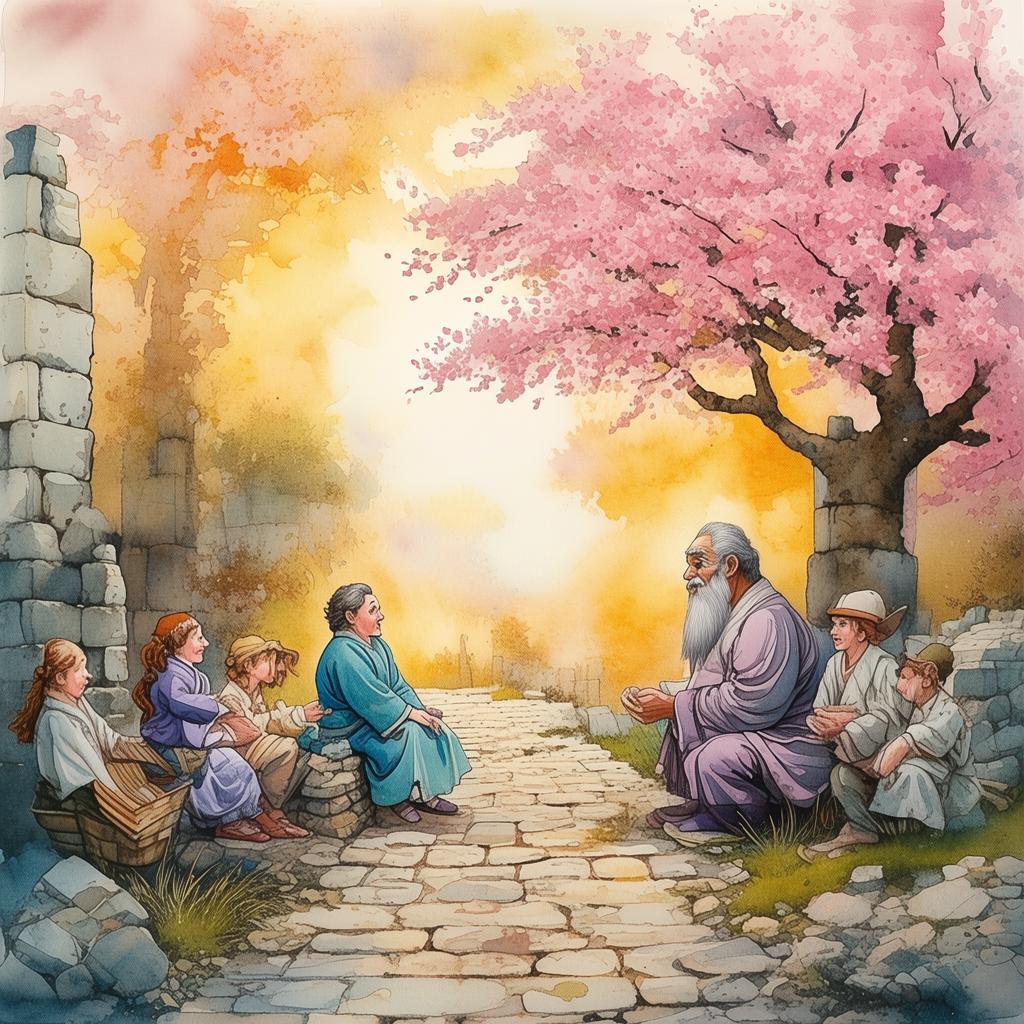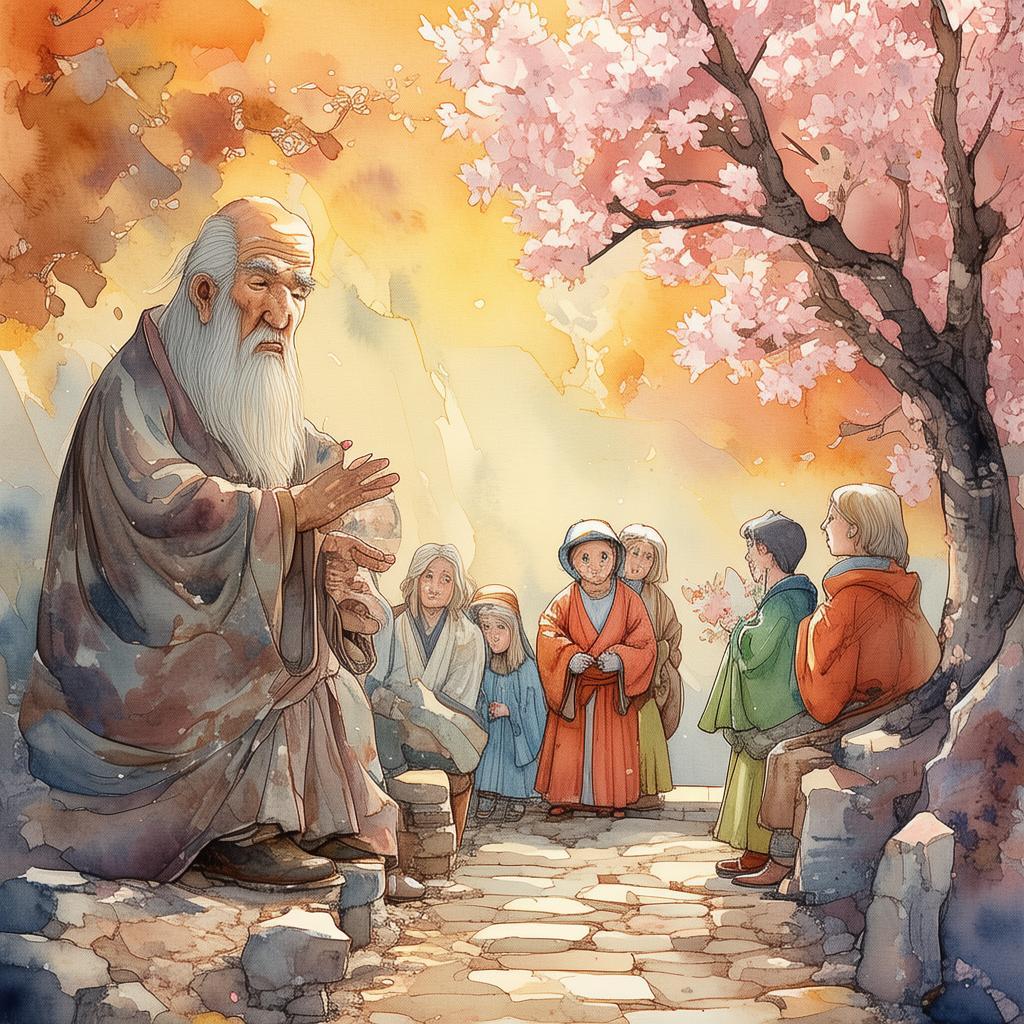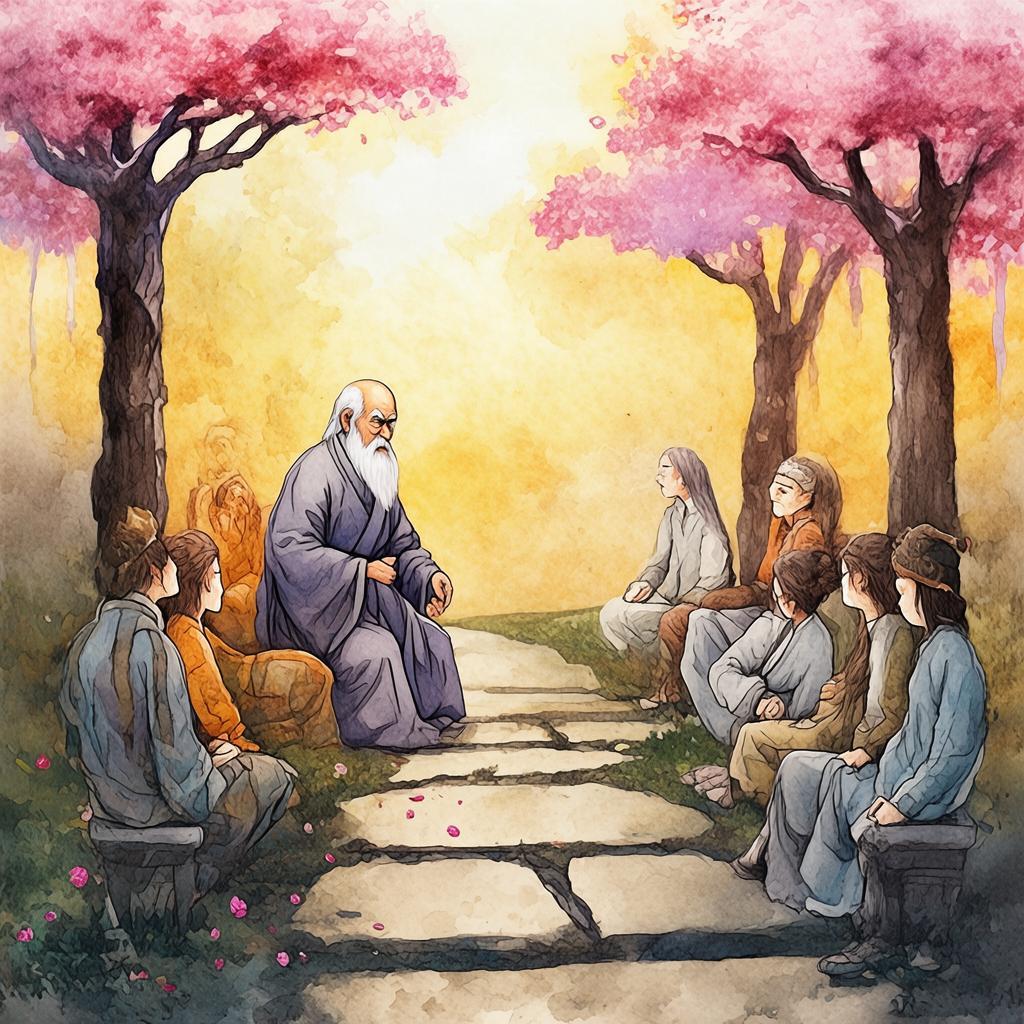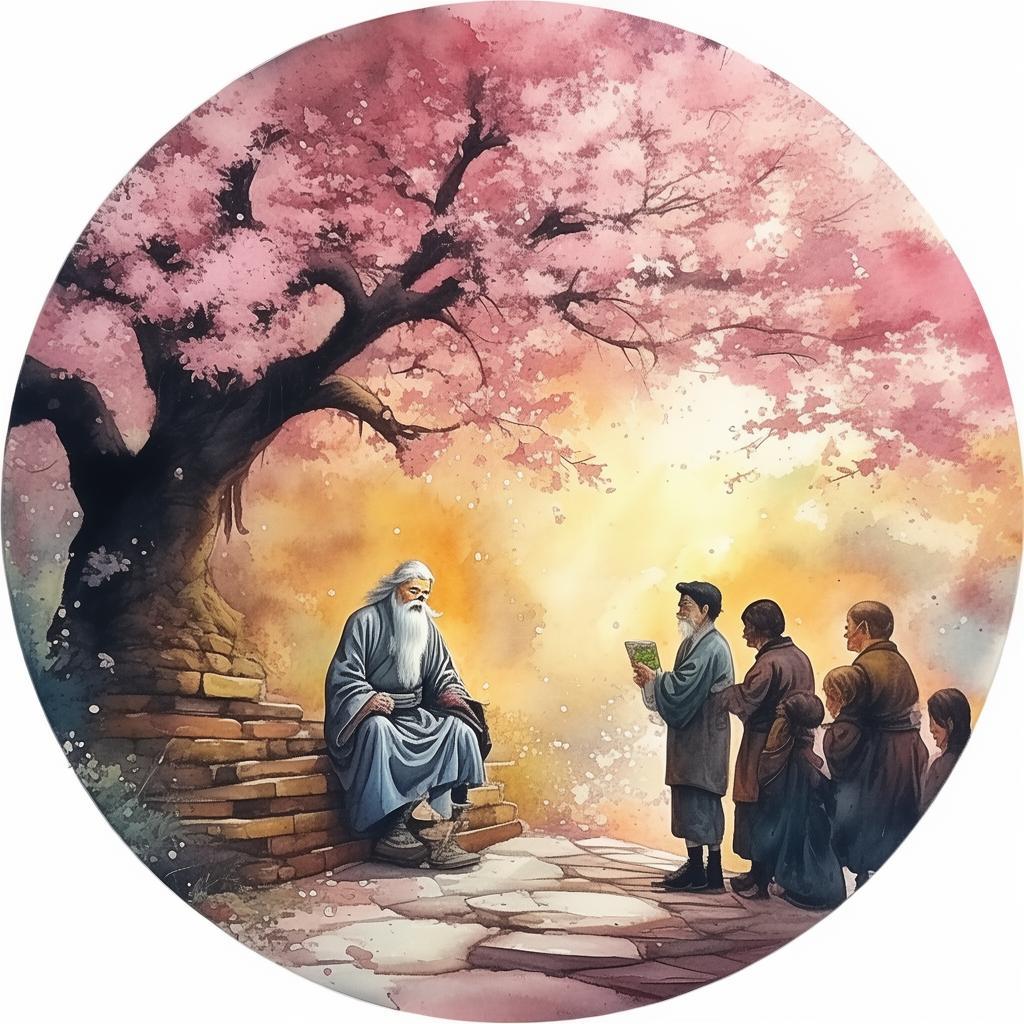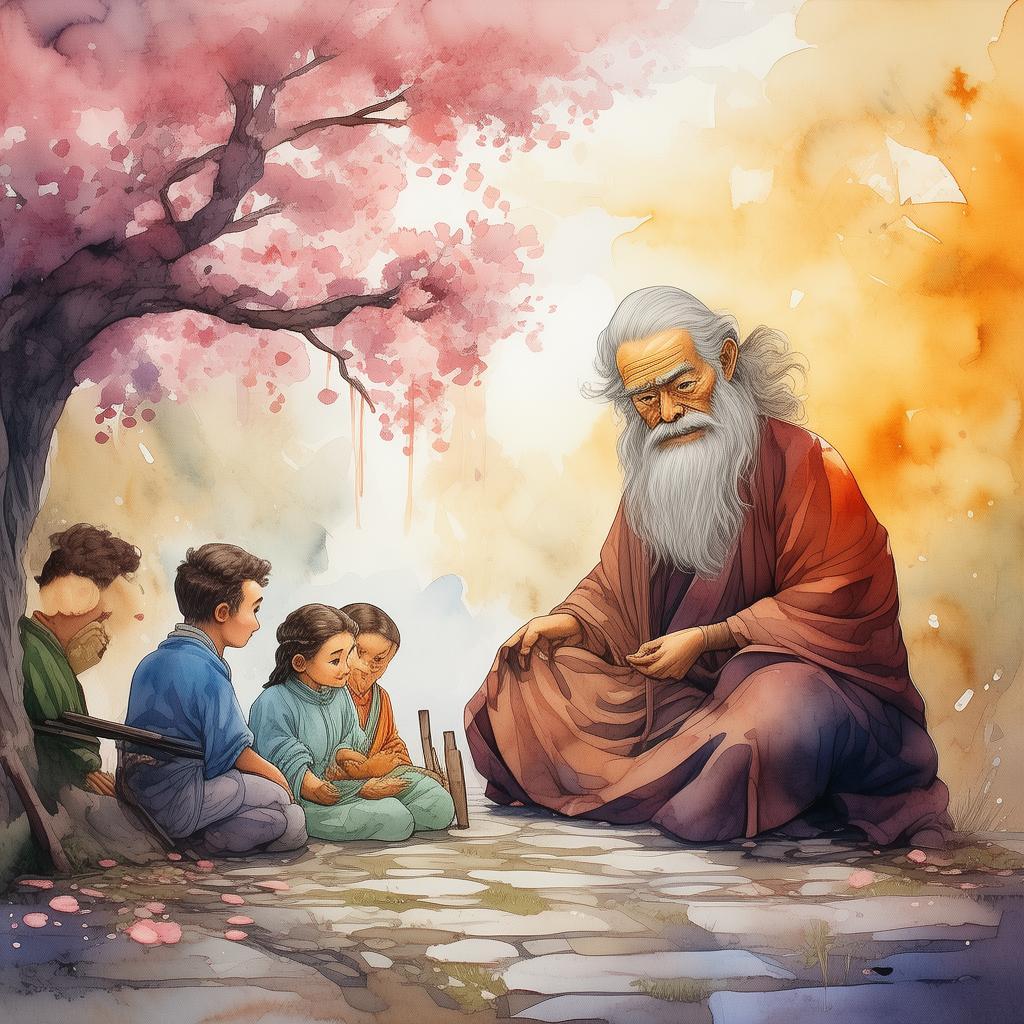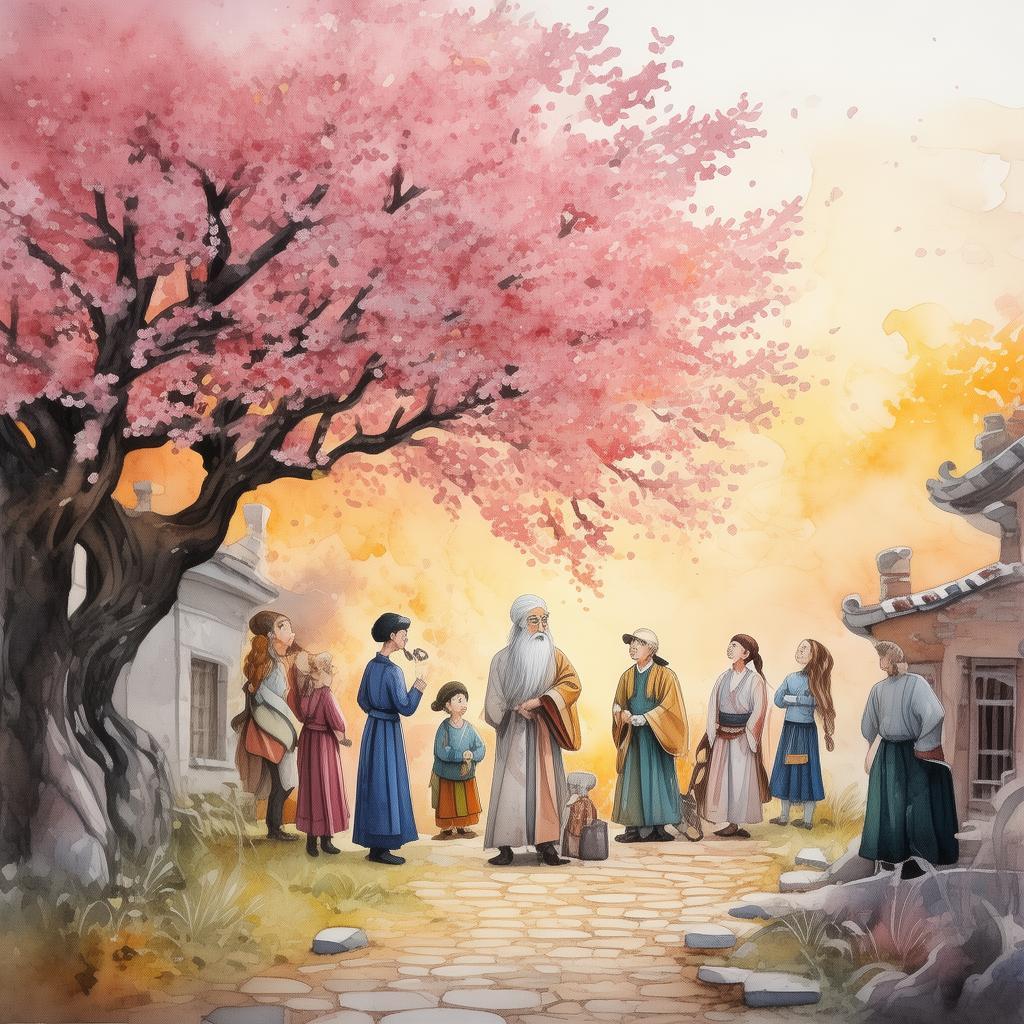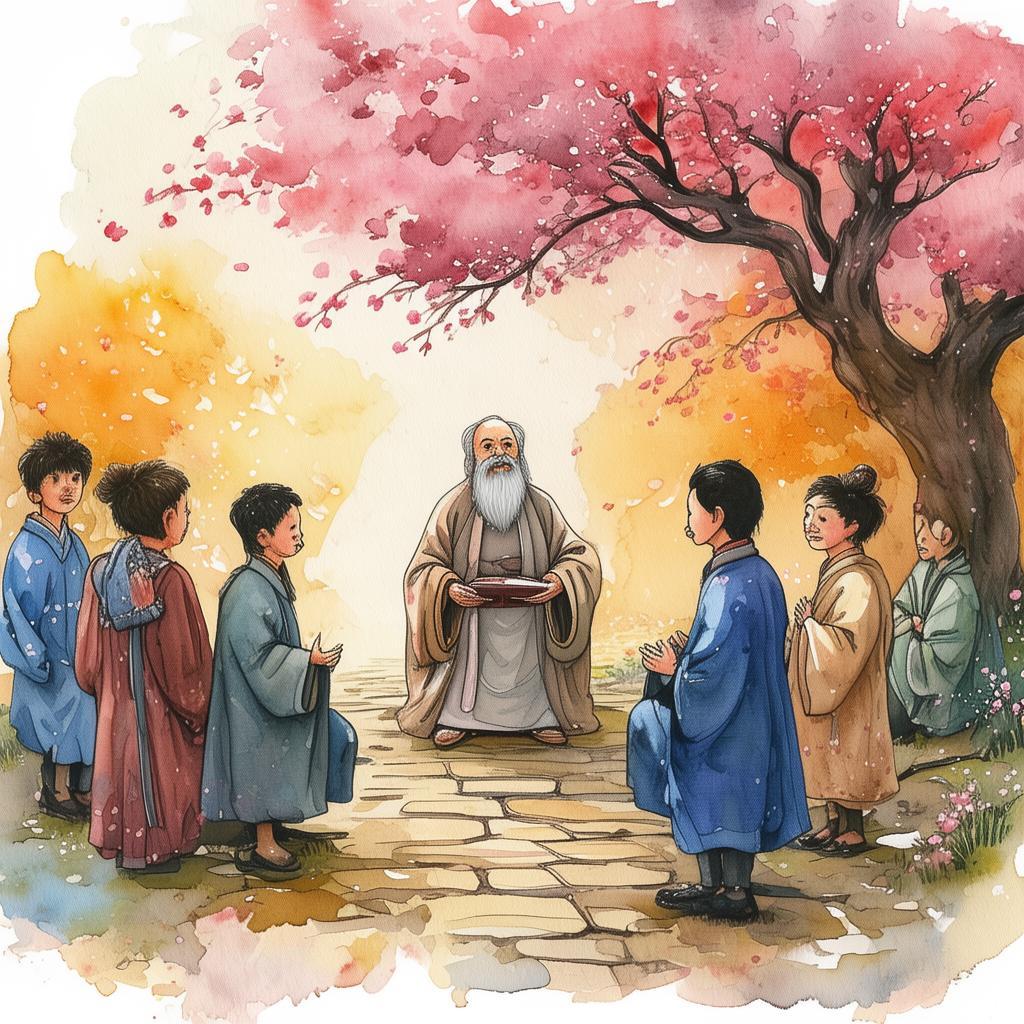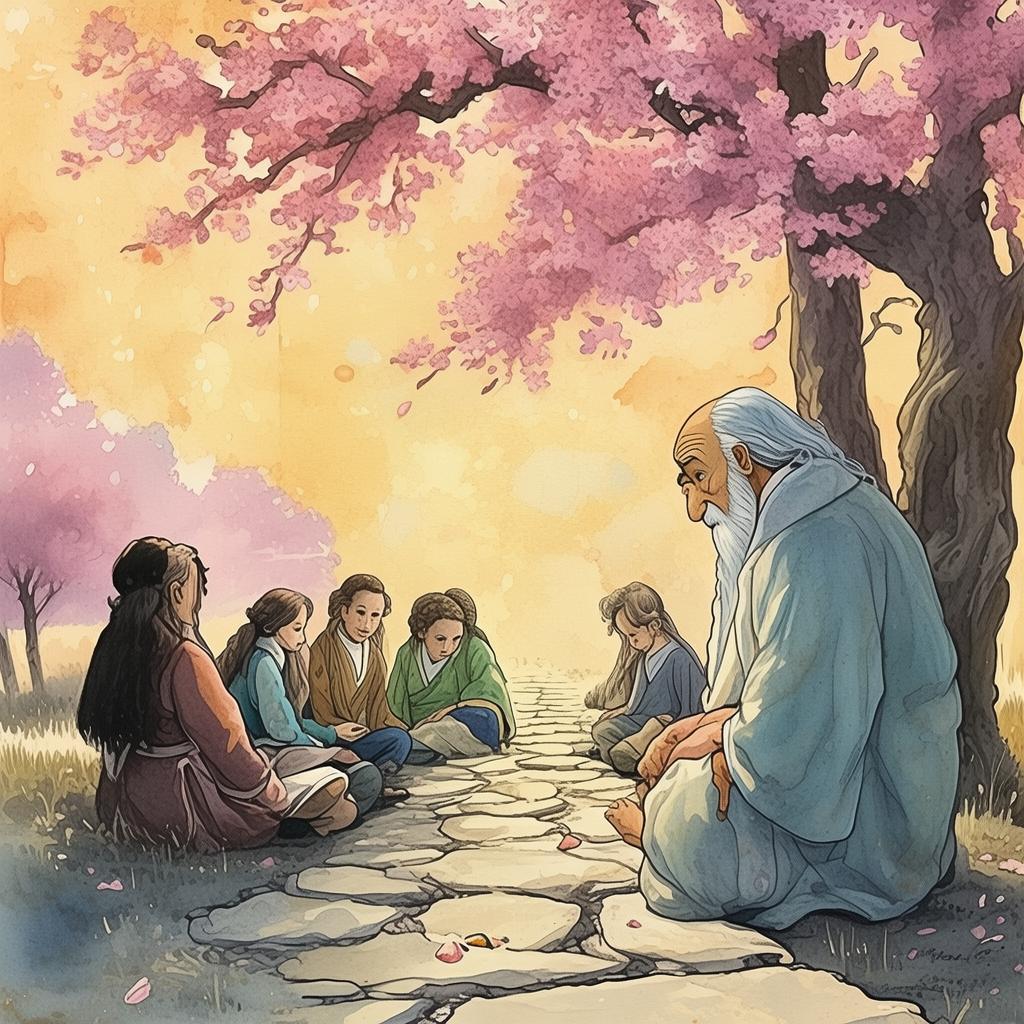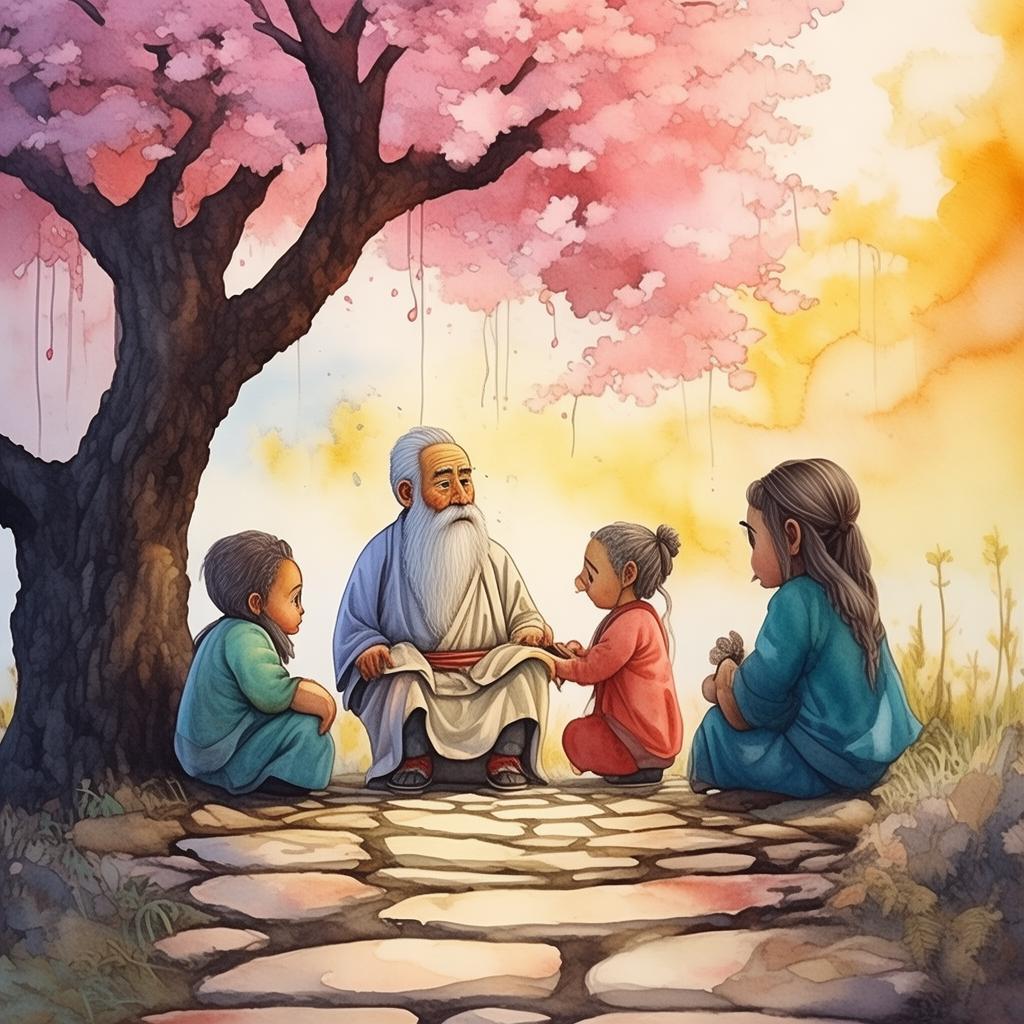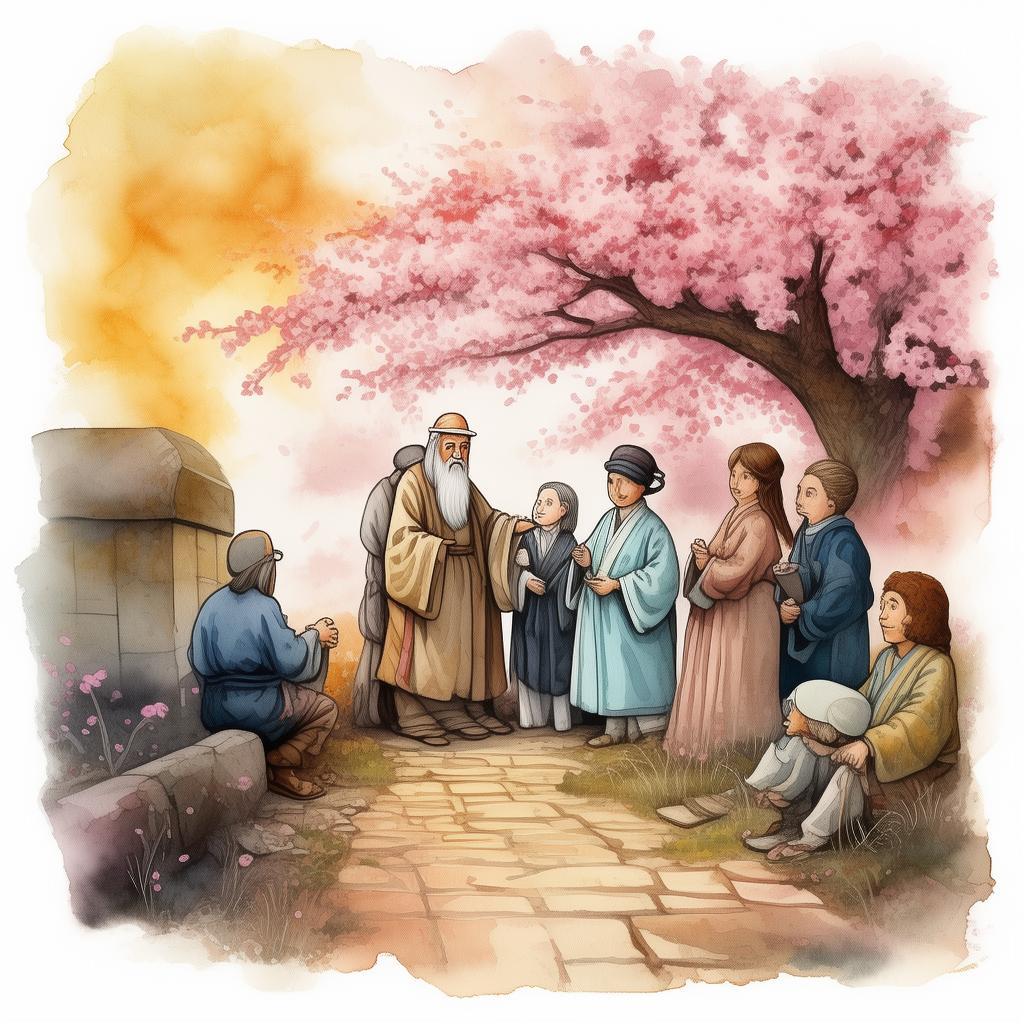Time-Traveling Scholar and the Ebb of Wisdom
In the heart of ancient China, there was a scholarly man known far and wide for his profound knowledge and wisdom. His name was Li Yuan, and he was a time-traveling scholar. Li Yuan had mastered the ancient art of time travel, a secret passed down through generations of his family. With a flick of his wrist and a whisper of his incantation, he could transport himself to any era, witnessing the unfolding of history firsthand.
One crisp autumn morning, Li Yuan found himself in the bustling city of Chang'an, during the Tang Dynasty. As he wandered through the market, he overheard a group of merchants discussing a peculiar contest. The contest was being held by the local scholar, Master Wei, who had posed a riddle to the townspeople:
"I am not alive, yet I grow; I don't have lungs, but I need air; I don't have a mouth, yet water kills me. What am I?"
The townspeople were stumped by the riddle, and Li Yuan, ever the scholar, felt compelled to help. He approached Master Wei and confidently solved the riddle, much to the amazement of all present.
"Ah, young master, you have solved it! The answer is 'fire.' Just as fire grows when it consumes wood, it requires air to sustain itself, but it is extinguished by water," Master Wei explained with a smile.
Impressed by Li Yuan's knowledge, Master Wei offered him a challenge: to travel back to the time of Confucius, the great philosopher of ancient China, and seek out the origin of this riddle. Master Wei believed that the answer to this riddle was a profound moral lesson, one that could guide the future of humanity.
With a nod of determination, Li Yuan activated his time-traveling abilities and transported himself to the Spring and Autumn period, over 500 years prior. He found himself in the presence of Confucius, who was discussing the nature of wisdom with his disciples.
Li Yuan, feeling a surge of humility, approached Confucius and explained his mission. Confucius listened intently and then smiled, "You have come to the right place, young scholar. The riddle of fire is indeed a profound lesson."
Confucius continued, "Fire represents the essence of change and transformation. Just as fire consumes, it also gives life. It is a symbol of the cycle of life, the passage of time, and the importance of adapting to change. Without change, wisdom becomes obsolete."
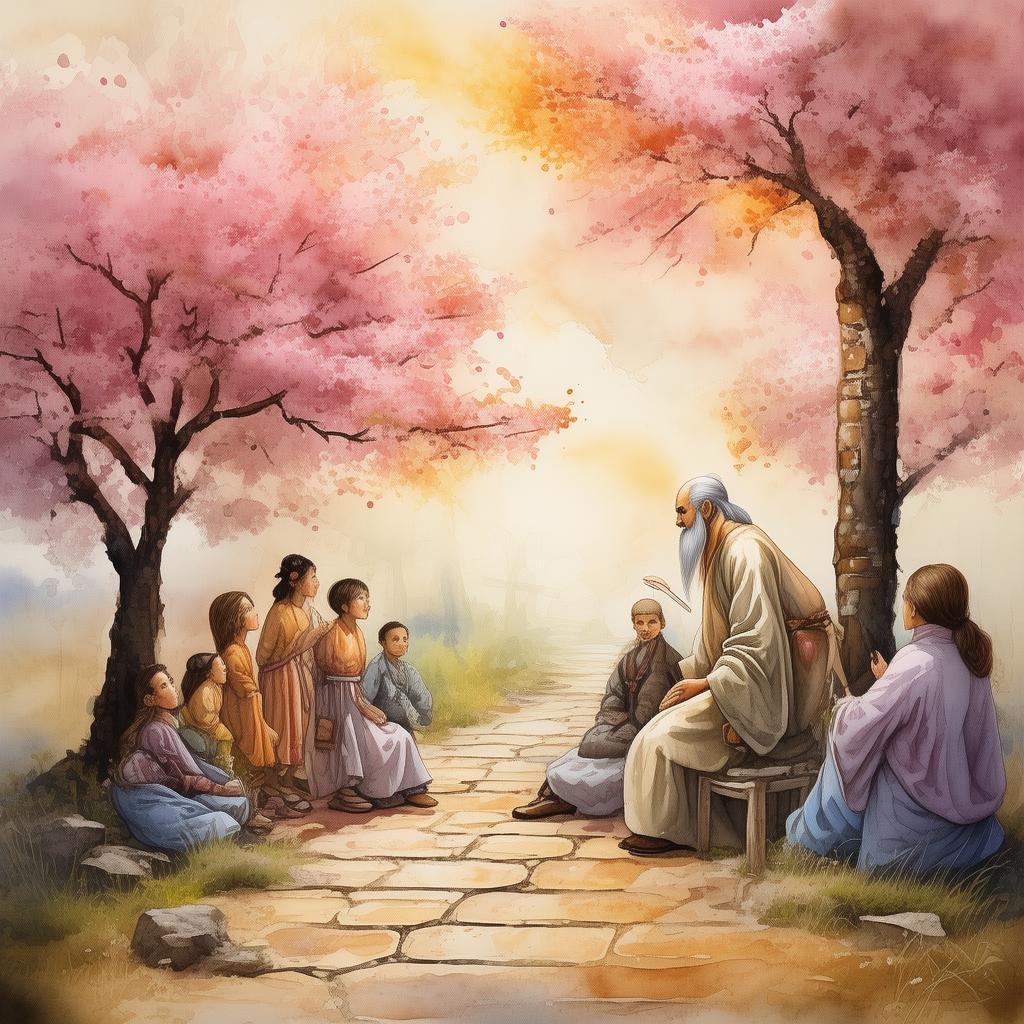
Li Yuan pondered these words and realized that wisdom was not a static entity, but a journey. It was about embracing change and learning from the past to inform the future. He thanked Confucius and returned to his own time.
Upon his return, Li Yuan shared his newfound wisdom with Master Wei and the townspeople. The riddle of fire had not only provided him with a deeper understanding of the passage of time but also taught him the importance of wisdom in the face of change.
From that day forward, Li Yuan's teachings on the ebb and flow of wisdom spread far and wide, inspiring generations to come. He had learned that true wisdom was not about possessing knowledge but about understanding the ever-changing nature of life and using that understanding to guide the future.
As the seasons changed and the world continued to evolve, Li Yuan's story became a legend, a testament to the power of wisdom and the importance of embracing the ebb of time.
✨ Original Statement ✨
All articles published on this website (including but not limited to text, images, videos, and other content) are original or authorized for reposting and are protected by relevant laws. Without the explicit written permission of this website, no individual or organization may copy, modify, repost, or use the content for commercial purposes.
If you need to quote or cooperate, please contact this site for authorization. We reserve the right to pursue legal responsibility for any unauthorized use.
Hereby declared.
